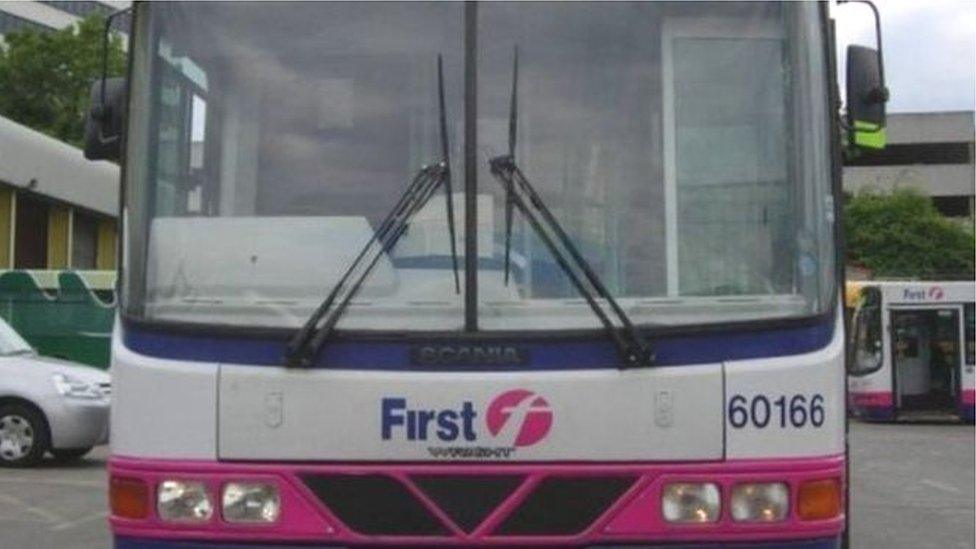First Bus drivers in Glasgow to hold strike ballot
- Published

First Bus drivers in Glasgow will vote on whether they want to take industrial action - including strikes
First Bus drivers in Glasgow are to be balloted on industrial action.
The Unite union has informed the operator it intends to measure support for industrial action, including strikes, to "protect public safety".
The dispute centres on service changes due to begin in October, which the union claims will result in significant cuts in running times and recovery times for drivers.
First Bus said it would never compromise on safety.
The firm said the planned changes were aimed at improving the service, and it was happy to discuss the union's concerns further.
But the union claims the changes are designed to increase profits.
'Public safety is paramount'
Unite said this was the first time no consultation was undertaken on such changes, calling it a "suspicious development".
Mick Dowds, Unite's national convener, said: "Unite members are furious that at a time when public safety is paramount and after Unite welcomed the Speed Awareness Agreement alongside supporting other health and safety initiatives such as 'Destressing the Driver', First Glasgow is blatantly scurrying around with a new set of rosters.
"This will directly impact on drivers' wellbeing and could have a catastrophic effect on passengers and the public."
He said that First Group had announced some time ago that it intended to sell its passenger operations including its flagship First Glasgow company.
He added: This latest development highlights exactly why Unite has been calling on local authorities such as Glasgow to bring passenger services back into public and municipal ownership.
"This is essential to ensure services meet the needs of communities and those most vulnerable in society rather than having diminished services in the chase for profit."
'No compromise' on safety
Andrew Jarvis, managing director of First Bus in Scotland, said the firm was disappointed with the strike ballot decision over plans that were still in the consultation phase.
He added: "We are striving to make things better for the customer by making bus travel simple, speeding up bus boarding times, reducing journey times wherever possible, using data to make better operational decisions and developing a customer relationship as opposed to a transactional one. As part of this process, we are using data to assess our network performance across a number of areas including running time.
"These proposals will be fully reviewed and tested as is our standard practice in this scenario and nothing as yet is set in stone. We would always seek the input of our trade union colleagues and staff in this scenario to ensure their feedback is taken into account.
"The safety of our staff, customers and other road users are our number one priority and this is something we will never compromise on."